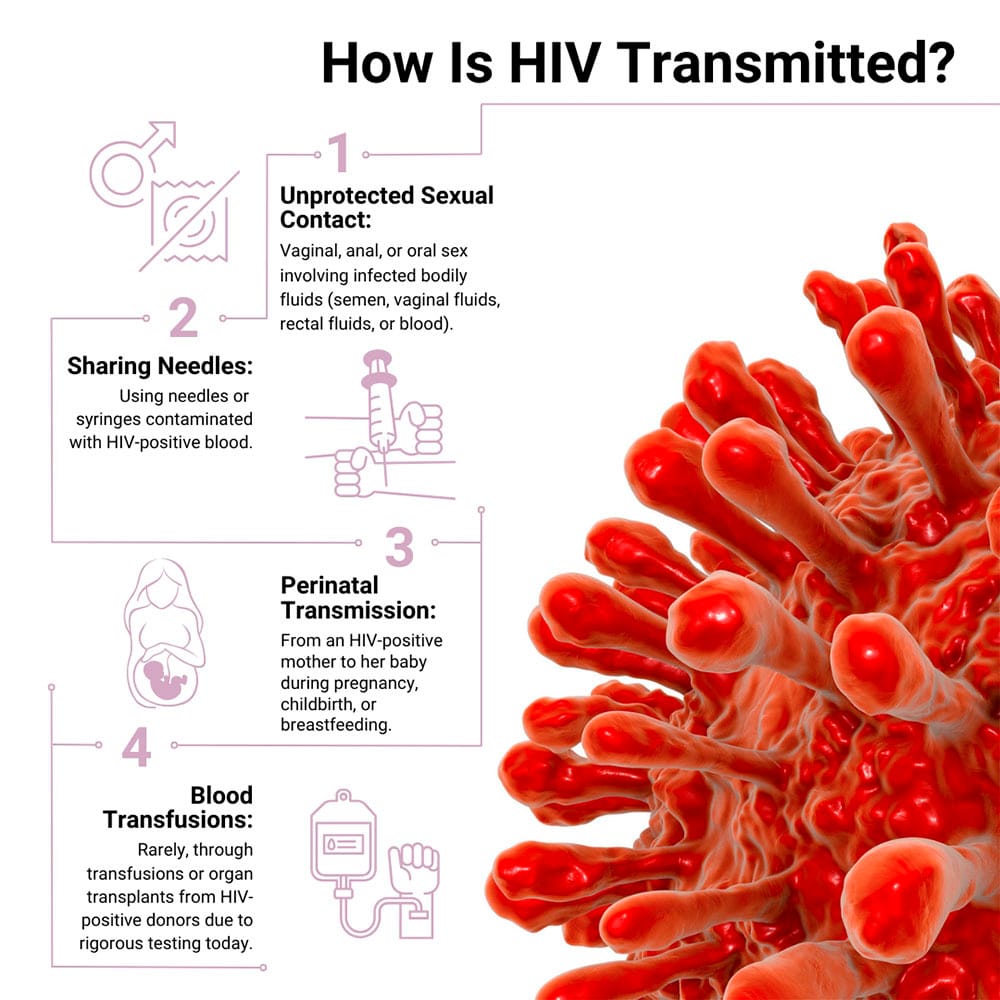What Is HIV?
Human immunodeficiency virus (HIV) is a virus that specifically targets your immune system. HIV damages your immune system by taking over CD4 cells. Once HIV enters your body, it uses these cells to replicate and then destroy them. Your body loses its ability to defend itself against infections and diseases.
AIDS is the most advanced stage of HIV infection. It happens when HIV has severely damaged your immune system. You’ll be diagnosed with AIDS if your CD4 cell count drops below a certain level, which is typically less than 200 cells per cubic millimeter of blood.
If you contract HIV, the virus stays in your body for life. But modern treatments like anti-retroviral therapy (ART) can keep the virus under control. Cohen Medical Practice (CMP) provides exceptional gynecological care to women throughout NYC.
Dr. Felix Cohen, a respected expert in feminine health, offers treatment options for a wide range of gynecological conditions and sexually transmitted diseases like:
How Is HIV Transmitted and What Are Its Symptoms?
HIV transmits through unprotected sexual contact whether you’re having vaginal, anal or oral sex. The virus passes when infected fluids like semen, vaginal fluids, rectal fluids or blood enter your body. The risk of HIV might be higher when you or your partner have open sores, cuts or other STDs, and the virus can get in directly.
Other ways HIV spreads include:
- If you use or share needles, syringes or other injection equipment with someone who has HIV
- If you’re pregnant and HIV-positive, passing the virus to your baby during pregnancy, childbirth or breastfeeding
- Through a blood transfusion or organ transplant if the donor is HIV-positive
HIV is dangerous because you may not even notice any symptoms for years after contracting the virus that gradually weakens your immune system. You may experience flu-like symptoms such as fever, headache, sore throat, rash, muscle aches and swollen lymph nodes, easily attributable to other conditions. These are signs that your body is reacting to the virus. You might not notice anything unusual for a long time, but HIV will still be affecting your immune system.
Over time, you may start to experience:
- Frequent infections
- Unexplained weight loss
- Ongoing fatigue
- Diarrhea
- Night sweats

How Is HIV Diagnosed?
Your doctor may recommend antibody tests to detect HIV. When you’re infected, your immune system produces antibodies to fight the virus, and these tests find those antibodies in your blood or saliva. It usually takes a few weeks after exposure for your body to produce enough antibodies to be detected.
There are several tests available to detect HIV at different stages of infection, such as:
- Antigen and antibody test. This can detect HIV sooner than antibody tests alone because your doctor looks for both the antibodies your body makes and an antigen.
- Nucleic acid tests (NAT). NAT is a sensitive type of HIV test that detects the virus’s genetic material directly in your bloodstream. NATs can detect HIV within 10 to 33 days after exposure.
- HIV home test. You can test for HIV at home using rapid tests or blood sample kits. Rapid antibody tests can give you results in just 20 to 30 minutes.
If you receive a positive result from any of these tests, you’ll need a confirmatory test to verify the diagnosis and your overall health response, including a complete blood count, chest x-ray, and Pap smear. This is typically done with a follow-up blood test. The sooner you confirm your status, the sooner you can start treatments, which are designed to manage HIV symptoms and keep you healthier for longer.
What Are My Treatment Options for HIV?
There is no cure for HIV, but there are several treatment options including ART, which controls the virus and prevents HIV from progressing to AIDS. While ART doesn’t cure HIV, this helps your immune system to stay strong and reduces the risk of transmitting the virus to others. It’s recommended that you start ART as soon as possible after receiving a positive HIV diagnosis.
ART includes several classes of medications that target different parts of the HIV life cycle including:
- Nucleoside reverse transcriptase inhibitors (NRTIs). These stop HIV from replicating by interfering with the reverse transcriptase enzyme.
- Non-nucleoside reverse transcriptase inhibitors (NNRTIs). These also block reverse transcriptase but in a different way than NRTIs.
- Protease inhibitors (PIs). These block an enzyme called protease, which HIV needs to replicate.
- Integrase inhibitors. These prevent HIV from inserting its genetic material into your cells.
Dr. Cohen prescribes the right combination of these medications based on your situation to give you the best chance of controlling the virus. ART medications may also cause side effects like nausea, fatigue and headaches, but these usually lessen as your body adjusts to the treatment.
If you’re looking for expert care in feminine health whether you need routine check-ups, specialized testing or advanced surgical options, contact Cohen Medical Practice (CMP) as soon as possible after you’ve had unprotected sex with a new partner. Maintain your fertility and your overall health with the help of experienced feminine health experts.

